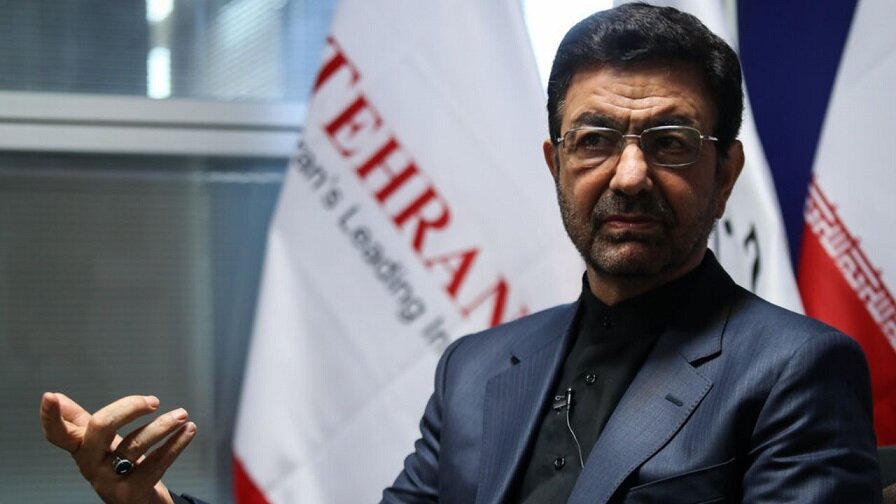There will be no JCPOA 2: lawmaker

TEHRAN – Fada Hossein Maleki, a member of the Iranian Parliament’s National Security and Foreign Policy Committee, responded on Sunday to recent remarks by Saudi Arabia’s top diplomat, saying Riyadh is not in a position to call for another nuclear deal on Iran’s nuclear program.
Saudi Foreign Minister Faisal bin Farhan Al-Saud has recently called for a new nuclear deal with Iran to replace the existing one, officially known as the Joint Comprehensive Plan of Action (JCPOA).
“Riyadh is not in a position to address international issues especially the JCPOA,” Maleki told the Islamic Consultative Assembly News Agency (ICANA) on Sunday.
According to the lawmaker, the outcome of the United States presidential election has dealt a severe blow to the Saudis.
“In fact, Trump was feeding on various countries such as Saudi Arabia and has pursued the warmongering policies of Riyadh in the region,” he added.
The lawmaker’s remarks came in response to bin Farhan’s interview with CNBC in which he claimed that President Donald Trump’s “maximum pressure” campaign against Iran has set the groundwork for a new agreement with Iran and that Saudi Arabia should be a part of any potential negotiations between the incoming U.S. administration and Iran on a new nuclear deal. The chief Saudi diplomat said Riyadh seeks to partner with the U.S. administration on a potential new agreement, which would not only limit Iran’s nuclear activities but also seek to address what he called its “regional malign activity.”
Such an accord could be labeled the “JCPOA++,” he added. The JCPOA is a 2015 agreement between Iran and world powers that limited the country’s nuclear activities in exchange for the lifting of sanctions. The original agreement was signed between Iran, the five permanent members of the United Nations Security Council — China, France, Russia, the U.K., and the U.S. – Germany and the European Union.
But Trump withdrew the United States from the JCPOA on May 8, 2018, calling it the “worst deal in history.” Since then, the White House has imposed sweeping economic sanctions on Iran under the “maximum pressure” policy in a bid to reach what he called a better deal with Iran.
Other signatories remain committed to the nuclear deal and refrained from going with Trump, but now that Trump seems to be losing the U.S. presidential election, there is talk that a renegotiated pact could be on the cards, with more pressure on Iran over its missile program and other regional issues. A new agreement has been touted as a “JCPOA+” — that is, like the original deal but with more conditions attached according to CNBC.
The Saudi foreign minister believes such an agreement could go even further, claiming that a “JCPOA++” deal could also seek to address Iran’s missile program and its regional activities.
But Maleki said there would be no such deal as JCPOA++, adding that the Saudis’ offer in this regard is not important.
“In fact, the Saudis’ proposal to hold negotiations on missiles and other issues is not important at all,” remarked Maleki, a former diplomat.
The lawmaker pointed out that the next U.S. administration should take action to repair Trump's sabotage and build trust and credibility for the United States in the international arena.
He added, “In other words, Trump's renegade in the JCPOA should be removed by Biden,”
Last week, Mojtaba Zolnouri, the head of the parliamentary committee, also rejected bin Farhan’s remarks, saying, “These remarks indicate three things: First, the United States, the Zionist regime, and Saudi Arabia are alone, and none of them see themselves as capable enough to confront the Islamic Republic of Iran. They need the help of others. Second, the remarks of the Saudi foreign minister show the hostile ties of Saudi Arabia with the Zionist regime and the United States. [Third], neither the U.S., nor Israel, or Saudi Arabia have the right to interfere in Iran’s decisions. And Iran is free to negotiate with any country it wants.”
In addition to Zolnouri, many other Iranian officials have ruled out any prospect of a new round of talks between Tehran and Washington due to the U.S. withdrawal from the 2015 nuclear deal.
SM/PA
Leave a Comment